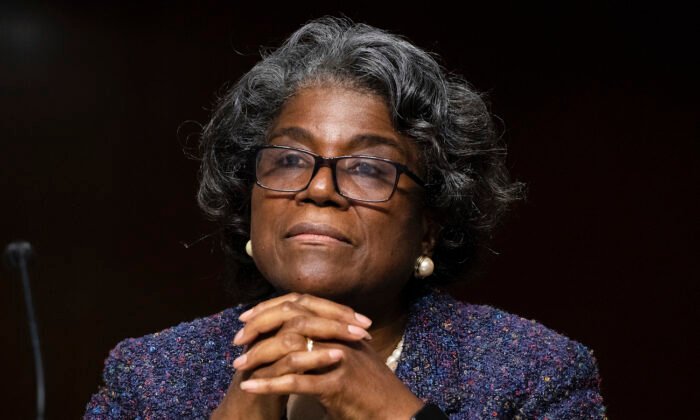US Grants $60 Million in Aid and Resources for Haiti in Response to Gang Violence
The U.S. government announced that it will be providing “a significant number” of mine-resistant ambush-protected vehicles to Haiti.
The United States is allocating an additional $60 million in humanitarian aid and security assets to help address gang violence in Haiti, as stated by the U.S. envoy to the United Nations on Monday.
Ambassador Linda Thomas-Greenfield, during her visit to Haiti, announced the latest aid package, bringing the total U.S. humanitarian support for the country to $165 million this year.
The aid package will help address gaps in nutrition, food security, shelter, water and sanitation services while providing cash assistance for essential commodities to Haitians, noted Ms. Thomas-Greenfield.
The U.S. government, through the Department of Defense, will also be providing “a significant number” of mine-resistant ambush-protected vehicles to support the multinational security mission in Haiti.
Furthermore, the State Department is planning to procure additional armored vehicles to aid mission personnel in assisting the Haitian police in combating gang violence, noted Ms. Thomas-Greenfield.
This year, the United States has already sent 16 armored personnel carriers to Haiti as part of a $200 million investment to strengthen the capacity of the Haitian police against criminal gangs and enhance security.
“The U.S. government remains committed to supporting the people of Haiti,” stated Ms. Thomas-Greenfield.

Since the assassination of President Jovenel Moise in 2021, Haiti has been facing a severe political, humanitarian, and security crisis.
Last October, the UN Security Council authorized a multinational security support mission led by Kenya to assist Haitian police in addressing gang violence. Kenya deployed 400 police officers to Haiti last month.
The agency reported that in the first quarter of 2024, 2,500 Haitians, including 82 children, were killed or injured as a result of gang violence, and nearly half of the country’s 11.7 million residents are facing acute food insecurity.
Haiti currently has the highest number of internal displacements due to crime-related violence, with 578,074 people displaced this year. Numerous schools in Haiti have had to close due to ongoing violence.
The UN has called for the multinational security support mission in Haiti to assist local law enforcement in enhancing security while upholding international human rights standards.





